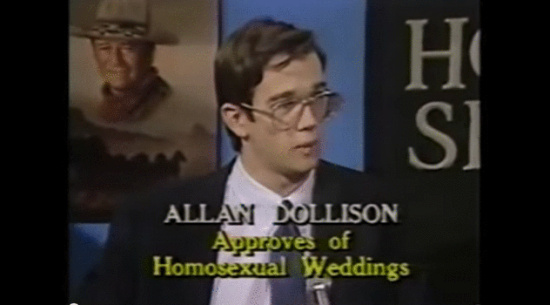Without a doubt the hottest legal issue that continues to percolate in our federal Court system is the issue of marriage equality (or, as some term it, “gay marriage”). The rapid transformation of this issue in just the span of less than two years can only be described as breathtaking. Currently as a result of either court rulings, legislative action, or even state initiatives, the number of states that now have true marriage equality and allow same-sex unions is at 30 (out of 50 states plus the District of Columbia). It seems that new ones are being added every day, and the new states are some of the most conservative in the country on this issue — like Utah, Wyoming and Oklahoma.

This is all the more striking when you consider that years ago, every state that had an opportunity to vote on this issue all voted no on marriage equality. And although there had been some outlying state court decisions in the 1990s and 2000s, such as Hawaii and Massachusetts, for the longest time most courts were not willing to stick their neck out for this issue until now. The question is what has changed and why. The two people most responsible for the sudden and gigantic legal shift on this issue are U.S. Supreme Court Justices Anthony Kennedy and Ruth Bader Ginsburg.
By the time they had arrived on the Supreme Court, there was a terrible decision on the books called Bowers v. Hardwick from 1986. This decision upheld Alabama’s right to criminalize and throw adults in jail for engaging in consensual sexual activity with another adult. At least one of the justices of the opinion, Justice Lewis Powell, regretted that opinion until the day he died.
Almost 20 years later the virtually identical law (this time from Texas) came before the Supreme Court, and this time the five votes to allow the government’s intrusion into ordinary people’s private affairs had dropped to three, and there were six votes for overturning that law. The seed was planted, and the authority of the government ito regulate who people have relations with was now being threatened. In fact, when Antonin Scalia dissented in the Texas case, he predicted that the opinion’s law and arguments would someday be used to overturn gay marriage bans. He was right.
The reason why the issue is so hotly contested is that there is no one way, or one set of biases, to look at it from. Thus people tend to come up with lots of different arguments. There are of course religious arguments, legal arguments (both for and against), moral arguments and even historical arguments. In my opinion, the reason why the anti-marriage equality cases have been losing almost everywhere is that they are definitely on the weaker side of almost all the arguments.
Most people are familiar with California’s foray into the issue. California’s current lieutenant governor, Gavin Newsom, used to be the mayor of San Francisco. As the mayor, he made the decision (in his first term) to start issuing marriage licenses to same sex couples. Extensive litigation over that executory decision resulted in a California Supreme Court decision that allowed same sex couples to get married. For a very short while. Proposition 8 was placed on the ballot in 2008 to overturn the California Supreme Court decision. Prop 8 narrowly passed, but it succeeded in banning same-sex marriage. Then some folks who wanted their right to marry filed suit this time in federal court over Prop 8 and its constitutionality. The lawyers fighting on the side of marriage equality were true titans — Ted Olson and David Boies, who in 2000 had fought on opposite sides over President’s Bush’s election. (Olson won.) If two diametrically opposed legal foes could come together, then maybe the entire country could come together?
At that trial, one of the main arguments advanced by the anti-marriage equality folks were that heterosexual marriages would now be threatened by these gay couple unions. It has always seemed to me that this is an incredibly weak argument. Nobody else’s marriage threatens other people’s marriages. After Kim Kardashian decided to divorce after 72 days of televised bliss, did a bunch of people decide to do the same thing? The other argument is procreation, and this rather doom and gloom scenario that humans will not be reproducing in these marriages. I don’t know if those folks are aware that at least for women science has invented a work around for this problem. Plus: What about elderly people who want to marry later in life. Are we going to ban their unions?
They also often throw out that these new same sex unions will undermine thousands of years of history. Typically the folks making these arguments never check to see if marriage has not evolved over time. The answer is that it absolutely has. Even in America it was acceptable up until 1967 to throw people in jail for being members of a different race and married to each other. It seems that most of these laws and restrictive freedom bans on people’s private matters generate from the South.
Last year the Supreme Court had the opportunity to speak finally on this question of what can the government do to prevent people from marrying members of the same sex. They answered the question, but not definitively. Ironically, they took the case that overturned California’s Prop 8 Ban, which could have been the final say on whether or not a state could ban same sex marriages. They punted on a legal technicality called standing, because California’s government officials refused to defend the ban in court and the person who filed the appeal did not have standing to do so. The other decision they issued that day (Windsor) involved two women who had to resort to marrying in Canada (they were New York citizens), and when one died the federal government wanted taxes that a heterosexual couple would not have had to pay. The surviving spouse sued and won. The Obama Administration had already announced they would not appeal the decision. House Republicans stepped in and failed. (How did they have standing?)
The Windsor decision – and in particular the Scalia dissent – has been used to go to many courts and fight against bans in states whose legislatures would never overturn their bans or amend their constitutions. One of the more provocative arguments made against the anti-marriage equality folks is that this is a constitutional right under the equal protection clause, and because it is a right, you cannot have popular elections where the majority gets to vote on the rights of the minority (Hint: The minority will always lose). That is why they are called rights.
Several of these conservative states that have seen their bans lose time after time in federal court (only a single federal trial court in Louisiana has yet upheld a ban) recently begged the Supreme Court to intervene. It only takes four votes to hear a case (but obviously five to win), so either side could have demanded a hearing, but amazingly they both blinked.
I obviously think the courts have been getting it right, and actually was outspoken on this issue 27 years ago on TV in southern California. There are many reasons I believe this way, but one of the reasons is I think inherent in our core beliefs is that what other people choose to do with their private lives, and who they marry, and who they spend their time with is their business. It is not the government’s business. That consensual behavior and interracial marriage was illegal during my life time shows just how much we have moved as a country on this issue. Besides if you happen to be in the marriage catering/planning business, don’t you want double your customer base? I guarantee you the divorce lawyers are all for this too!
So as I said in the headline, the debate is over. The only question is will there ever be a sweeping ruling from the Supreme Court? Hmmmn, maybe that is why Justice Ginsburg is sticking around, because she wants the chance to write that opinion. Or will the Court just allow the lower Courts to handle the issue. The Kennedy/Ginsburg view has won almost in every court, often with Republican-appointed Judges joining in. Why change what is working?

CLICK TO MANAGE